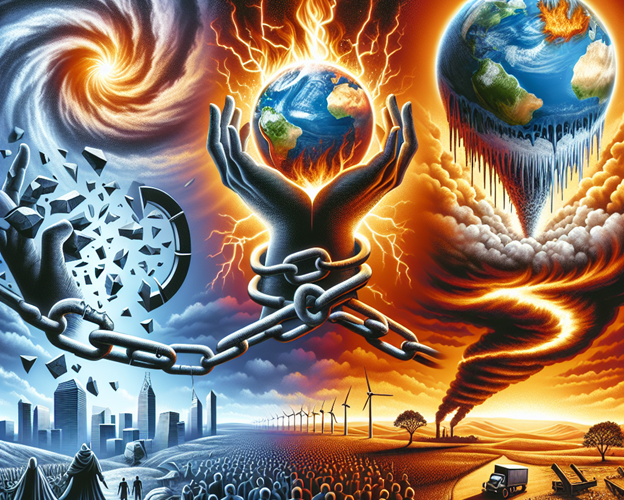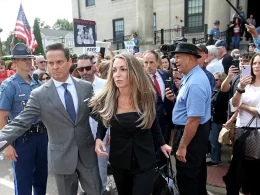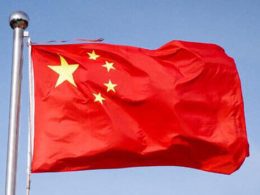Throughout history, the intricate dance between political changes and global crises has often led to significant shifts in international stability and governance. Political changes, whether through elections, coups, or revolutions, frequently set the stage for major global crises by destabilizing established systems and altering the status quo.
Conversely, global crises, be they economic downturns, pandemics, or wars, have a profound ability to catalyze significant political changes across the world. This reciprocal relationship underscores the importance of understanding the dynamics at play between political shifts and global challenges, as they collectively shape the course of human history.
Historical Overview of Political Shifts Leading to Global Crises
Political changes have long been precursors to economic downturns and global crises. Historical patterns reveal that shifts in governance can directly impact global security and peace, often setting off a chain reaction that leads to widespread turmoil. For instance, the Great Depression of the 1930s followed a period of significant political upheaval in various parts of the world, demonstrating how economic instability can be exacerbated by political instability.
Similarly, the onset of World War II was deeply intertwined with the political changes occurring in Germany, Italy, and Japan, where shifts towards authoritarian regimes led to aggressive expansionism and ultimately global conflict. These examples highlight the critical role political shifts play in leading to or exacerbating global crises.
The Role of Political Leadership in Navigating Crises
The ability of political leaders to effectively navigate global crises is profoundly shaped by preceding political changes. Leadership responses to crises require a high degree of adaptability in both political leadership and policies. For example, the global financial crisis of 2008 demanded swift and flexible responses from political leaders worldwide, with varying degrees of success.
The crisis underscored the importance of robust and adaptable governance structures that can respond to unexpected global challenges. Political changes that foster strong, responsive, and responsible leadership are thus crucial in navigating the complex landscape of global crises.
Impact of Political Decisions on Economic Stability

Political decisions play a pivotal role in determining the economic stability of global markets. Political changes, especially those that lead to uncertainty or instability, often precede economic instability. For instance, sudden political shifts can spook investors, leading to market volatility or capital flight.
Moreover, significant political changes, such as the adoption of protectionist policies or the restructuring of international alliances, can have far-reaching effects on global trade and economic stability. These dynamics underscore the interconnectedness of political decisions and economic outcomes, particularly in the context of global crises.
Social Unrest and Political Changes as Precursors to Crises
In many vulnerable countries, political changes are often both a precursor and a consequence of economic crises. Social unrest, fueled by dissatisfaction with governance, can lead to political changes that further destabilize the country. This, in turn, exacerbates economic challenges, creating a vicious cycle of instability.
Additionally, global crises can accelerate political changes in unstable regions, as seen in the Arab Spring, where economic grievances contributed to widespread protests and significant political upheaval across the Middle East and North Africa. These examples highlight the complex interplay between social unrest, political changes, and economic crises.
Globalization and the Spread of Political Ideas During Crises
The phenomenon of globalization has facilitated the rapid spread of political ideas across borders, especially during times of crisis. Global crises often serve as catalysts for political changes, not just within individual countries, but on an international scale.
For example, the global spread of democratic ideals in the late 20th century was in part accelerated by the shared challenges of economic and social crises, leading to significant political transformations in various parts of the world. This illustrates how global crises can serve as a conduit for the diffusion of political ideologies, influencing the trajectory of political changes across diverse nations.
Case Studies: Political Changes Leading to Crises in Different Regions
Examining specific case studies reveals how political changes have often preceded economic crises in vulnerable regions, disrupting international stability. For instance, the Latin American debt crisis of the 1980s was precipitated by political instability and policy missteps in several countries, leading to a decade of economic hardship. Similarly, the Asian Financial Crisis of 1997-1998 exacerbated by political corruption and inadequate governance in affected countries. These case studies underscore the critical role that climate changes play in either precipitating or intensifying global crises, with profound implications for international stability.
Strategies for Mitigating Crises Through Political Action
Mitigating the impacts of global crises requires concerted political action, both at the national and international levels. Political changes can drive global cooperation in crisis response efforts, enhancing the ability to address challenges collectively. For example, the establishment of international financial institutions and regulatory frameworks following World War II represents a significant political change aimed at preventing future economic crises. Moreover, effective climate changes can reduce the impacts of global crises on vulnerable populations by fostering resilience, promoting sustainable development, and ensuring equitable access to resources. These strategies highlight the potential of political action to mitigate the adverse effects of global crises.
Conclusion: The Future of Political Changes and Global Crises

Looking to the future, the relationship between political changes and global crises will continue to shape responses to emerging challenges. Adapting political frameworks to better anticipate and respond to global crises is crucial for mitigating their impacts effectively. As the world becomes increasingly interconnected, the ability of political systems to adapt and evolve in response to global crises will be paramount.
Embracing flexibility, fostering international cooperation, and prioritizing the well-being of vulnerable populations will be essential in navigating the complex landscape of future global challenges. In this way, climate changes will remain at the forefront of efforts to address and overcome global crises, shaping the trajectory of human development for generations to come.












